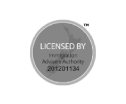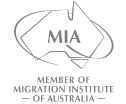Australia’s dynamic hospitality sector offers structured migration pathways for skilled professionals through its Skilled Migration Program, with over 35,000 permanent visas granted annually in tourism and hospitality-related occupations. From executive chefs requiring TRA skills assessments to hotel managers navigating VETASSESS criteria, successful migration hinges on aligning qualifications with Australia’s ANZSCO occupational frameworks while leveraging evolving visa policies like the new Skills in Demand Visa.
Structural Overview of Hospitality Roles in Australian Migration
ANZSCO Classification Frameworks
The Australian Bureau of Statistics categorizes hospitality workers through six-tier ANZSCO skill levels, with managerial roles like Hotel or Motel Manager (141311) requiring AQF Diploma qualifications and three years’ experience for Skill Level 2 eligibility. Frontline positions such as Waiter (431511) fall under Skill Level 4, permitting entry with Certificate II/III credentials or equivalent on-the-job training. The system creates distinct pathways where Accommodation Managers (141999) accessing regional 491 visas need different documentation than Chefs (351311) pursuing employer-sponsored 186 PR pathways.
High-Demand Occupation Segments
Australia’s Skills Priority List identifies chronic shortages in three key hospitality domains:
- Food Services: With 23,500 chef vacancies nationwide, Cook (351411) roles on the STSOL list enable two-year 482 visa sponsorship, while Pastrycooks (351112) qualify for regional 494 visas through TRA assessments.
- Accommodation Management: The 2025 introduction of specialized labour agreements allows Hotel Service Managers (431411) to access four-year temporary visas despite being excluded from the Core Skills list, provided they demonstrate front office or housekeeping supervision experience.
- Specialist Roles: Niche positions like Casino Duty Manager (141999) require VETASSESS-recognized diplomas plus two years’ gaming operations experience for skills assessment clearance.
Visa Architecture for Hospitality Professionals
Permanent Residency Pathways
The revamped Skilled Independent Visa (189) prioritizes hospitality managers scoring 85+ points through:
- Age optimization (maximum points under 33)
- Superior English (IELTS 8.0 = 20 points)
- Regional study bonuses for graduates completing diplomas in designated areas
Chefs transitioning from 482 to 186 ENS visas must prove three years’ full-time employment at TSMIT-compliant salaries (currently $72,300 AUD), with recent policy changes permitting part-time experience accumulation under specified conditions.
Temporary Skill Shortage Mechanisms
The replacement of 482 visas with the Skills in Demand Visa introduces three streams impacting hospitality workers:
- Core Stream: For Hotel Managers earning above $72,300 with VETASSESS approvals
- Specialist Stream: Targeting executive chefs with $162,000+ salaries and proven innovation in menu engineering
- Essential Worker Stream: Pilot program for regional Café Workers (431211) with Cert III qualifications
New mobility provisions allow visa holders to change employers within 180 days without sponsorship lapse, reducing exploitation risks prevalent in previous temporary schemes.
Skills Assessment Protocols
Management Roles Assessment
VETASSESS mandates Hotel Managers provide:
- Organizational charts showing supervisory authority over 5+ staff
- Profit & loss statements from managed properties
- Rostering systems demonstrating workforce coordination
- Marketing plans for occupancy rate improvement
A recent case study saw a Mumbai-based Marriott supervisor rejected for failing to prove direct involvement in budgetary control, highlighting the strict evidentiary requirements.
Trade Occupation Assessments
TRA’s Job Ready Program for cooks involves four stages:
- Provisional Skills Assessment: verifying Cert III Commercial Cookery equivalency
- Job Ready Employment: 12 months’ paid work under supervision
- Workplace Checks: Assessor visits validating skills application
- Final Assessment: Practical cooking tests aligned with Australian standards
The process costs $5,200 AUD on average, with 68% success rates reported among Indian applicants in 2024.
Regional Employment Dynamics
Designated Area Migration Agreements
The Northern Territory DAMA enables Accommodation Managers to access concessions including:
- 10% TSMIT reduction ($65,070 threshold)
- Exemption from non-discriminatory salary testing
- Pathway to PR after three years’ service
Similarly, South Australia’s Hospitality Industry Labour Agreement permits Bar Managers to apply through streamlined skills assessments if employed in postcodes classified as Category 2 regional areas.
Sector-Specific Challenges
Despite incentives, regional employers face 43% staff attrition rates due to:
- Limited education opportunities for migrants’ families
- Inadequate public transport infrastructure
- Salary disparities averaging 22% below capital city wages for equivalent roles
The 2025 introduction of the Regional Accelerated Skills Program aims to counter this through free TAFE courses for migrant spouses and subsidized regional business investments.
Strategic Migration Planning
Credential Optimization Techniques
Successful applicants combine formal qualifications with strategic experience documentation:
- A Philippines-trained chef enhanced her TRA assessment by obtaining Certified Hospitality Trainer credentials from the American Hotel & Lodging Association
- An Indian hotelier reduced his VETASSESS processing time by 40% through notarized translations of duty rosters and performance appraisals
Financial Preparation Benchmarks
Prospective migrants should budget for:
- Skills assessment fees: $800-$5,200 depending on occupation
- Visa application charges: $4,240 for primary 491 applicants
- Medical examinations: $450 per adult
- Salary verification reports: $1,700 for complex employment histories
Currency hedging strategies become critical given the 6-18 month processing timelines vulnerable to AUD exchange rate fluctuations.
Future Policy Trajectories
The proposed Hospitality Sector Compact outlines 2026-2030 reforms including:
- Automatic PR pathways for chefs maintaining TSMIT-level employment for 24 months
- Mutual recognition agreements with India/ASEAN countries for hospitality qualifications
- Digital skills passports integrating IELTS scores, employment records, and ANZSCO competency mappings
These changes aim to reduce processing times below 60 days for Priority Sector Advance applications while maintaining rigorous skills integrity checks.
For skilled hospitality professionals, Australia’s migration landscape presents complex but navigable opportunities through meticulous occupation alignment, strategic regional targeting, and proactive engagement with evolving policy frameworks. Success demands equal measures of culinary/managerial expertise and bureaucratic diligence in bridging international experience with domestic regulatory expectations.










